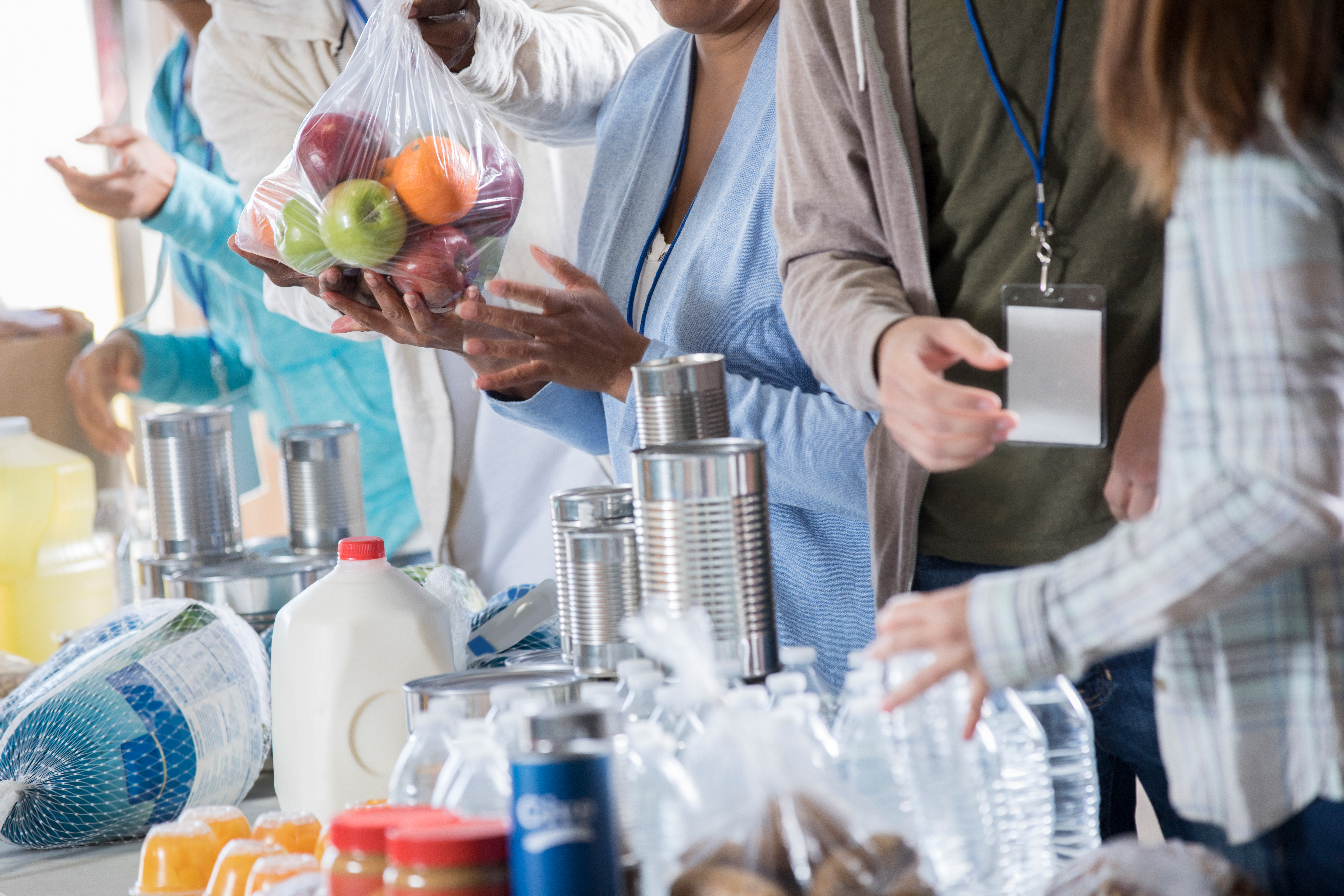Unhealthy food donations and social stigma are linked to higher rates of both food insecurity and obesity among food pantry clients, according to a new study from researchers at the UConn Rudd Center for Food Policy and Obesity.
According to the United States Department of Agriculture, 11% of American households experience food insecurity, with that number currently reaching 44% as a result of the COVID-19 pandemic. Further, those burdened by food insecurity are known to be at an increased risk of overweight and obesity due to a lack of affordable, healthy options. While past work on this topic has focused on federal food and nutrition assistance programs such as SNAP, the food banking system is another important resource for those experiencing hunger.
“The food banking system has evolved to respond to hunger, obesity, and diet-related illnesses, but when looking at people within the food pantry client population, there are notable disparities. Long term food pantry users, as well as Latinx and Black clients, have been found to have significantly greater odds of being burdened by both food insecurity and obesity when compared to short term users and white users,” says Kristen Cooksey Stowers, lead author of the study and Assistant Professor in the Department of Allied Health Sciences at the University of Connecticut. “This is a health equity issue that needs to be not only understood, but also addressed. The COVID-19 crisis’ role in increased levels of food insecurity and additional health risks for individuals with obesity and other preexisting conditions warrants this issue being addressed with urgency and intentionality.”
The study, published in PLOS One, reports on in-depth interviews conducted with 10 key stakeholders (e.g., food bank directors, food bank board members, advocates, elected officials) who are familiar with the food banking system in a professional capacity. The data reveals a strong consensus among these stakeholders that both structural and social characteristics of the food banking system play a role in health disparities.
Structural barriers, otherwise known as organizational factors, identified through the interviews include:
- Food banks fear losing corporate donors who contribute large quantities of food and beverages, despite the fact that their contributions are often unhealthy products.
- There is a gap between the nutritional profile of the foods available in the food banking system and clients’ nutritional needs, particularly those with obesity, diabetes, and other diet-related health challenges.
- Food banks located in urban spaces have limited access to farmers and fresh produce, which impacts their ability to provide nutritious options.
Social barriers, or interpersonal attributes of the system, include:
- Negative stereotypes about hunger and food insecurity in the media result in the misrepresentation of the preferences and needs of food pantry clients.
- There is often a disconnect between food donors and recipients, resulting in a fear of racism and discrimination, particularly among immigrant communities.
- Food pantry clients have limited access to information about healthy eating and how to navigate the food banking system.
“Many food pantry clients are burdened by hunger and diet-related diseases, both of which are rooted in historical oppression and marginalization in the United States,” says Marlene Schwartz, co-author of the study and Director of the UConn Rudd Center. “It is critical for the food banking system to work toward health equity through its policies and practices.”
Recommendations from study authors include:
- Introduce written nutrition policies to prohibit the provision of unhealthy foods in the charitable food system.
- Examine the hiring process within food banks to ensure that donors and food bank directors are demographically representative of their clients to address gaps between clients, staff, and other leaders.
- Enforce civil rights and anti-discrimination training for food banking system leaders.
- Utilize outreach efforts to target information gaps and build trust among clients of the food banking system in more accessible and culturally appropriate ways.
- Expand and enhance strategic partnerships to offer health-promoting resources.
Study co-authors include Nana Yaa Marfo, Eminet Abebe Gurganus, Kim Gans, and Marlene Schwartz of the University of Connecticut and Shiriki Kumanyika of Drexel University.
The study was funded by a grant from the Robert Wood Johnson Foundation.



